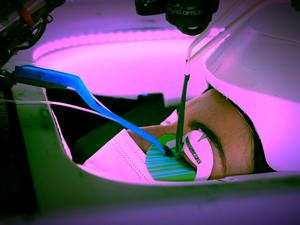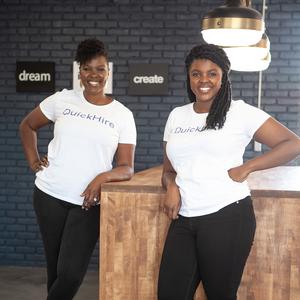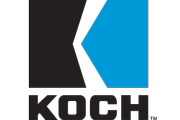
Welcome to The National Beat powered by American Inno, a weekly look at the startup fundings, profiles, analysis and other news you need to know from 40+ cities across the U.S. Want more stories like this in your inbox? Sign up for our future national newsletter from American Inno.
The Big One: Venture funding nationally is down. But smaller cities are booming
After a historic year for venture capital funding in 2021, this year has proven to be a different story for U.S. startups. American upstarts received $58.7 billion in funding last quarter, down 18.6% compared with the first quarter and down 20.8% year over year.
As investors pump the breaks, startups have laid off thousands of workers this year in an economy marked by rising interest rates, high inflation and a struggling stock market.
But a new study shows smaller markets — cities like Madison, Wisconsin, Kirkland; Washington; and Birmingham, Alabama; — have seen increases in venture capital financings.
Kirkland, a suburb east of Seattle, saw startups raise $298 million, a 1,724% increase compared with its average quarterly funding amount over the prior 12 months. Madison, Wisconsin, startups raised $299 million, which was up nearly 800%, according to a report from investment and research firm York Investments LLC.
Fastest-growing U.S. startup cities in Q2 2022
- Kirkland, Washington (1,724% growth, $298,628,474 raised in 8 deals)
- Stanford, California (1,033% growth, $116,463,641 raised in 7 deals)
- Madison, Wisconsin (793% growth, $299,195,995 raised in 7 deals)
- Birmingham, Alabama (480% growth, $47,041,175 raised in 11 deals)
- Wilmington, Delaware (257% growth, $828,736,753 raised in 20 deals)
- Ann Arbor, Michigan (229% growth, $184,649,998 raised in 7 deals)
- Cleveland, Ohio (166% growth, $102,525,000 raised in 7 deals)
- Santa Barbara, California (150% growth, $155,233,337 raised in 6 deals)
- Dover, Delaware (121% growth, $110,596,015 raised in 10 deals)
- Denver, Colorado (116% growth, $1,143,980,774 raised in 27 deals)
A couple big fundraising deals can create major swings in venture capital data, and that's especially true in smaller markets where fewer deals are getting done. (In Madison, loyalty app Fetch Rewards's $240 million round made up the bulk of the city's quarterly venture funding.) But it shows that even as the national tech market wobbles, startups in lesser-known tech hubs can still reel in large checks.
Startups to Watch
- Spot, a Seattle-based collaboration tool that allows clients to host meetings, share screens and embed websites, raised $5 million in funding. It's led by Gordon Hempton and Wes Hather, the co-founders of Seattle-based sales software company Outreach, which reached a value of more than $4.4 billion in June 2021 after a $200 million funding round. With Spot, users can create avatars to navigate the virtual workspace, and it allows users to customize their own workplaces.
- Smart Alto, a Birmingham, Alabama-based startup, is helping real estate agents reach homeowners without cold calling through its big-data and machine-learning approach. It sources leads for real estate agents and helps them reach out homeowners across LinkedIn, Facebook texts, email and direct mail. The startup was recently selected to Google's accelerator for Black founders.
- In Buffalo, New York, Brandlete is creating a place where athletes can build a business around themselves by connecting with brands and fans. Designed as a social media marketplace, the startup aims to create a platform that supports all sides of the ecosystem – players and their agents, potential advertisers and fans – with the goal of being a front door for those connections.
- Monarch Tractor, a startup in the Bay Area, wants to revolutionize the farming industry with its driver-optional, fully electric tractor. The tractors are currently being tested at Napa vineyards, and expects to begin shipping out a small batch of tractors in the fourth quarter this year. It also signed a deal last month with Foxconn to produce vehicles at a larger scale at an Ohio facility.
- In a bear market, investors are looking for alternative avenues to make a return. And Chicago startup FranShares aims to open up an entirely new asset class to everyday investors through franchise ownership. It investing platform brings fractional franchise ownership to any investor, not just those who are accredited. The startup allows anyone to invest in franchises for as little as $500, giving average Joe investors the chance to add franchises to their portfolio for the first time ever.
- In Cincinnati, Lerch has created a mobile event app that combines order-ahead technology with venue GPS. The idea is to modernize the live event experience by being part Waze (the wayfinding feature offers turn-by-turn directions to your seat, or, if needed, the nearest bathroom) and part Starbucks (users can pre-order food and beverages). Lerch was recently named to the Techstars Tulsa program.
- Denver startup Two Tails Story Co. is using machine learning to personalize children's books. The startup uses photos of a family's dogs and converts them into illustrated characters, which are automatically added into templates of books. Its goal is to harness the power of familiarity to teach young kids to recognize letters and numbers.
- Philadelphia-based REC is a creator-economy startup that offers co-working space, design studios, editing suites, equipment for recording and podcasting, as well as rehearsal and performance spaces. It recently landed $2 million investment led by rapper Sean Diddy Combs and plans to open a 12,000-square-foot space in Miami, it's second space after its facility in Philly.
- Los Angeles-based B Generous has created a product called Donate Now, Pay Later. Operating similarly to the buy-now, pay-later trend, the startup enables nonprofits to get donations upfront, rather than it dribbling in over the course of a year in monthly installments or future pledges. B Generous has raised $10 million to date.
A startup to watch on your TV: Portland children's toy startup lands deal with Jim Henson Co., Apple TV+
In the competitive children's toy space, Portland-area startup Slumberkins has taken off. After an appearance on Shark Tank, $12.2 million in revenue last year and a $12 million venture funding round, the Slumberkins founders are now bringing their characters to your TV screen. Slumberkins has partnered with The Jim Henson Co., creator of The Muppets, on a new series for Apple TV+. Portland Inno spoke with the Slumberkins founders on how a combination of timing, connection and determination got the show off the ground.
The ultimate vision is for Slumberkins to be a legacy brand and fundamentally change what a healthy childhood looks like with emotional wellness at its core. “We want to set our sights on redefining what health looks like for families and children in this space,” co-founder Kelly Oriard said.

Weird and Wired: A lab-grown meat startup's goal to make a $1 burger
Chicago startup Clever Carnivore is rethinking how meat can be produced. The startup makes actual pork, beef and chicken using stem cell biology and bioengineering in a process that's similar to fermenting beer. Costs for lab-grown meat products are currently higher than those of their conventional counterparts, but the firm hopes that with increased volumes, production costs can be lowered.
"We have what amounts to at this point a $10 burger, and as we continue to scale, we'll bring that cost down considerably," CEO Virginia Rangos said. "We're hoping to eventually get — and we think this is quite a practical — to a $1 burger, essentially."







